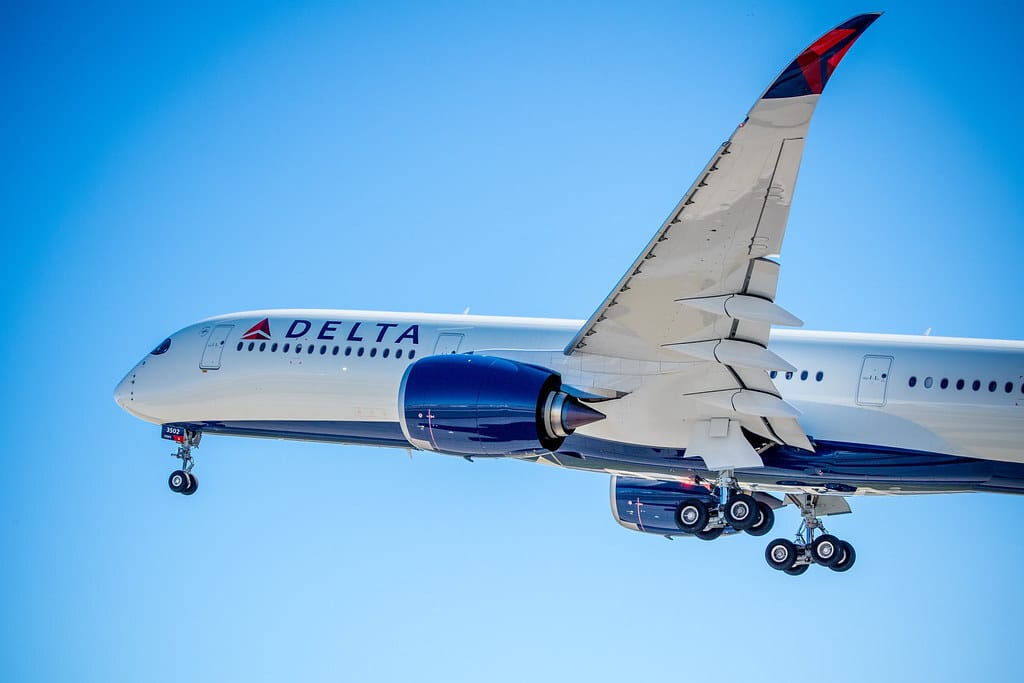In today’s issue: Could the Trump administration impose new tariffs on imported aircraft and aircraft parts?
Are new tariffs on the way?
🔵The Trump administration announced last week that it has launched a national security investigation into the import of commercial aircraft, jet engines, and aircraft parts. The Commerce Department is examining the “impact of foreign government subsidies and predatory trade practices on the competitiveness of the commercial aircraft and jet engine industry.”
In short, the Trump administration is looking at whether reliance on foreign-made aircraft and foreign-made aircraft parts—especially from countries with heavy subsidies or aggressive trade practices—poses a risk to U.S. national security by weakening domestic manufacturing capabilities and or disrupting critical supply chains. This inquiry is happening under Section 232 of the 1962 Trade Expansion Act.
What is the 1962 Trade Expansion Act and Section 232? In short, the Trade Expansion Act of 1962 was a law passed by JFK which gave Presidents the ability to cut or impose tariffs. Within that bill was Section 232, which specifically gave the President authority to impose tariffs on anything being imported that threatens and/or is detrimental to American national security.
Has Section 232 been used before by the Trump administration? Yes, quite a bit. The Trump administration has previously initiated other Section 232 investigations into numerous industries, including pharmaceuticals, semiconductors/SMEs, medium- and heavy-duty trucks, and processed critical minerals.
🔵Has the aerospace sector had tariffs before? Not really, for the most part. Until recently, the aerospace industry was operating virtually tariff-free under the 1979 Civil Aircraft Agreement, negotiated in Tokyo as part of the General Agreement on Tariffs and Trade (GATT).
Since the implementation of that agreement, the trade surplus of the U.S. aerospace industry has grown to $75 billion annually. However, back in April the Trump administration imposed a 10% baseline tariff on almost all goods coming into the United States, of which the aerospace industry was not exempt.
As you might imagine, since then the aerospace industry has been lobbying the Trump administration to restore the tariff-free regime that was previously in place. Airlines also began coming up with creative ways to avoid paying tariffs. Delta will only fly their new A350s on international routes so they never legally import the aircraft into the U.S. Meanwhile, Lufthansa may try to register their new 787s in Switzerland, where U.S. planes are not currently subject to tariffs.
🔵What now? There’s now a 3-week public comment period. After that, the Commerce Department has until late January 2026, to complete its investigation and submit its findings to the President, who then has 90 days to decide whether the imports pose a threat to U.S. national security.
The short comment window though, and the Trump administration’s usual fast pace, suggests we’ll likely have an answer well before April 2026. Depending on the results of this investigation, we could see a new wave of tariffs on aircraft and aircraft parts coming into the U.S.
🔵But didn’t the U.S. and UK just sign an agreement that included provisions related to airplanes and airplane parts? Yes, the U.S. did agree to let British plane parts into the U.S. tariff-free (or at least they probably did). The two countries also seem to have added a Section 232-related carve-out of sorts into the agreement. In the event that any Section 232 investigation might impact a British industry, the UK and U.S. will work together to achieve a “significantly preferential outcome” for any affected sector, as long as the UK adopts certain supply-chain-related security measures in the meantime. So, in short, if anything does come of this Section 232 investigation, the UK aerospace industry likely will not feel the full brunt of it, if its impacted at all.
🔵So will anything come of this or is this part of a broader negotiating strategy? 🤷
Share The Airline Roundup:
🎧 THINGS I’M LISTENING TO
🔵 The Air Show breaks down everything happening at Newark




